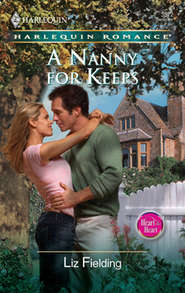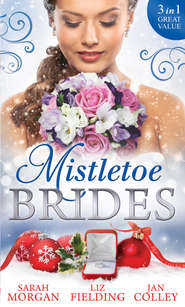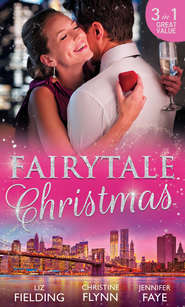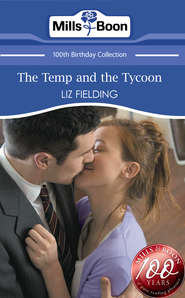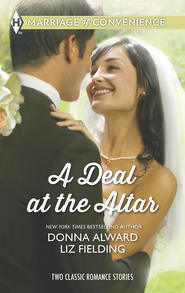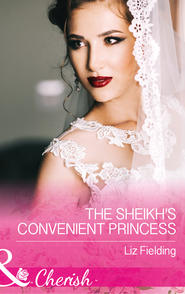По всем вопросам обращайтесь на: info@litportal.ru
(©) 2003-2025.
✖
The Marriage Miracle
Автор
Год написания книги
2018
Настройки чтения
Размер шрифта
Высота строк
Поля
She propped her elbows on the table, framing her chin with her hands. ‘In what way was he mad and bad?’
‘In much the same way as his namesake, Byron.’
Even in the dusky twilight of a long summer evening, with only candles and the fairy lights strung from the trees for illumination, her face had no softness, nothing of conventional prettiness, but her fine skin was stretched over good bones. The strength, it occurred to him, came from within. She wasn’t flirting with him. She was interested.
‘Mad, bad and dangerous to know. Such a temptation for foolish women. So, was the riotous wake an expression of relief?’ she continued earnestly. ‘Or a celebration of a life lived to the full?’
Too late now to walk away, even if he’d wanted to, and, pulling out the chair opposite her, he sat down.
‘That rather depends on your point of view. The family tended to the former, his friends to the latter.’
‘And you?’
He sat back. ‘I’m still struggling to come to terms with it,’ he said. ‘But how many people, knowing that they have weeks left, would take the trouble to arrange the kind of theatrical exit that would bring joy to their friends and scandalise their family? The kind of extravagant wake that people will be talking about for years?’
‘Theatrical?’ She looked thoughtful. ‘Are we talking black horses? Ostrich plumes?’
‘The works. Queen Victoria would have been proud,’ he said. ‘Although whether she would have been amused by a wake at which nothing but smoked salmon, caviar and vintage champagne is served, I’m not so sure.’
‘Sounds good to me.’
‘Yes, well, he wanted everyone to have a damn good time; an instruction which his many friends are, even now, taking to their hearts.’
‘That doesn’t sound mad or bad to me, but rather wonderful. So why aren’t you?’
‘Having a damn good time?’ Good question. ‘Perhaps because I’m in mourning for my own life.’ She waited, apparently the perfect listener, recognising that he needed someone to talk to, knowing that sometimes only a stranger would do. ‘I’m the one he nominated to clear up the empties—metaphorically speaking—when the partying is done.’
‘Really?’ She didn’t miss the oddity that he’d choose a much younger, apparently distant relative. ‘You’re a lawyer?’
‘A banker.’
‘Oh, well, that’s a good choice.’
‘Not if you’re the banker in question.’
She pulled a face. Not exactly a smile, but oddly cheering nonetheless. ‘Obviously the reckoning is about more than a few crates of champagne.’
‘I’m afraid so. But you’re right—it’s terribly bad manners to bring my troubles to a wedding. I really hadn’t intended doing more than putting in an appearance to toast the happy couple, and I’ve done that. I should call a taxi.’
He didn’t move.
‘Would a decent single-malt whisky help lay your ghosts?’
There was nothing of the mouse about her eyes, he decided. They were an unusual colour, more amber than brown, with a fringe of thick lashes, and her mouth was wide and full. He had a sudden notion to see it smile, really smile.
‘It might,’ he conceded. ‘I’m prepared to give it a try if you’ll join me.’ Then he looked towards the heaving marquee and wished he’d kept his mouth shut. The last thing he wanted to do was push his way through the joyful throng to the bar.
‘No need to battle through the dancing hordes,’ she assured him. ‘Just go through those French windows and you’ll find a decanter on the sofa table.’
He glanced towards the house, then at her, this time rather more closely.
‘Making rather free with our host’s hospitality, aren’t you?’ he suggested, vaguely surprised to discover that he was the one grinning.
‘He wouldn’t object. But in this instance the hospitality is mine. I live in the garden flat,’ she said, offering her hand. ‘Matty Lang. Best woman and cousin to the bride.’
‘Sebastian Wolseley,’ he replied, taking it. Her hand was small, but there was nothing soft about it and her grip was firm.
‘The big-shot New York banker? I wondered what you’d look like when I was writing the invitations.’
‘You did?’ He recalled the exquisite copperplate script that had adorned the gilt-edged invitation card to the blessing of the marriage of Francesca and Guy Dymoke and the reception they were holding in their garden to celebrate the fact. ‘Isn’t it the bride’s job to write the invitations?’
‘I’ve no idea, but in the event the bride had other things on her mind at the time.’
‘Oh, well, so long as she has time to concentrate on her marriage I don’t suppose it matters who writes them. She runs her own company, I understand.’
‘She didn’t have much choice,’ Matty replied, rather less cordially, and it occurred to him that he must have sounded unnecessarily critical.
‘No?’ he asked, not especially interested in who’d written the invitations or why. But he’d been rude—wedding celebrations tended to bring out the worst in him; good manners demanded that he allow his victim to put him right.
‘No,’ she repeated. ‘But on this occasion she wasn’t upstairs, busily drumming up some brilliant new PR stunt, she was in the throes of childbirth.’
‘That would certainly count as a legitimate excuse,’ he agreed.
Perhaps deciding that she’d overreacted slightly, Matty Lang lifted her shoulders in a minimal shrug. ‘To be honest, I did feel a bit guilty afterwards. She really wanted to write them herself. But I had to do something to keep my mind occupied and I’d have only been in the way upstairs.’
‘You did them quite beautifully,’ he assured her. ‘I hope she was properly grateful.’
‘Gratitude doesn’t come into it.’ Then, ‘Are you and Guy close friends?’ she asked, not that easily appeased. ‘Or is this duty visit simply the gloss on a thoroughly bloody day?’
‘I didn’t say it was a duty visit. Merely that I hadn’t intended to stay for long. As for friendship, well, Guy and I bonded at university over our mutual interest in beer and women…’ Realising that was perhaps not the most tactful thing to say at the man’s wedding celebrations, he took a verbal sidestep and went on, ‘But you’re right; we haven’t seen nearly enough of one another in the last few years. I live…’ lived, he mentally corrected himself, lived ‘…in New York. And Guy never stayed put in one place long enough for me to catch up with him.’
‘He’s a regular stay-at-home these days, I promise you,’ she assured him.
‘Good for him.’ Then, ‘Why?’
‘Why is he a regular stay-at-home?’
‘One look at his wife answers that question,’ he replied. ‘Why did you want to know what I look like?’
‘Oh, I see. Well, as best woman I get the pick of the unattached males.’ At which point he was amused to see the faintest touch of a blush colour the cheeks of the very cool Miss Lang. ‘Guy, I have to tell you, was no help,’ she went on quickly. ‘The best he could come up with for you was “tallish and darkish”. Friends you might be, but my enquiry regarding the colour of your eyes met with a total blank.’
‘No? Well, to be honest I couldn’t say what colour his are, either, but it’s been a while since we’ve been in the same country.’
‘His excuse was that he’d left gazing into your eyes to the countless females who trailed after you. But even if he had been that observant, I can well understand his difficulty.’
‘Okay, I’m hooked. In what way are my eyes difficult?’
‘They’re not difficult, just changeable. At first sight I would have said they were grey, but now I’m not so sure.’ Then, ‘Drink?’ she prompted. ‘Add a little water to mine. Not too much.’






